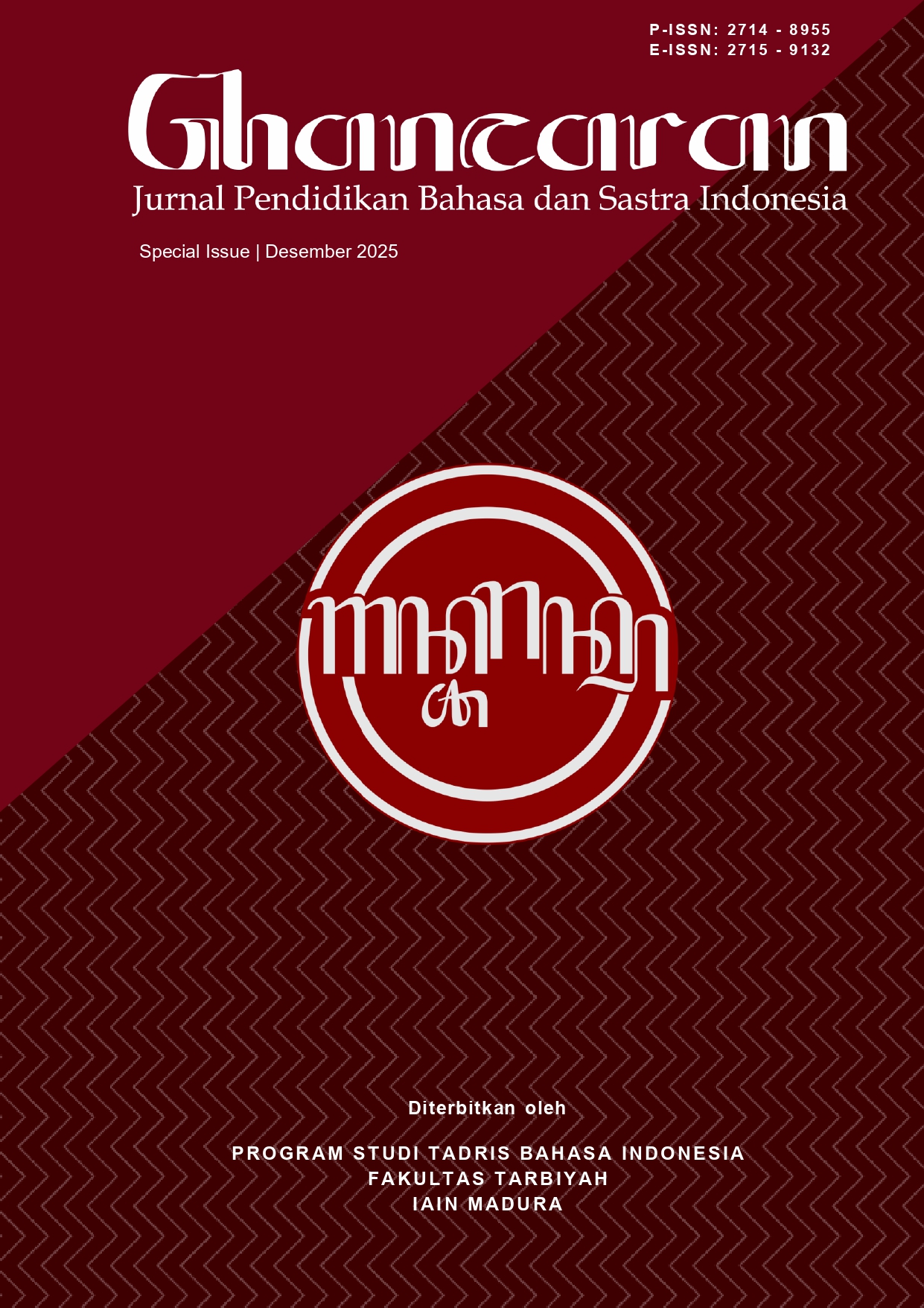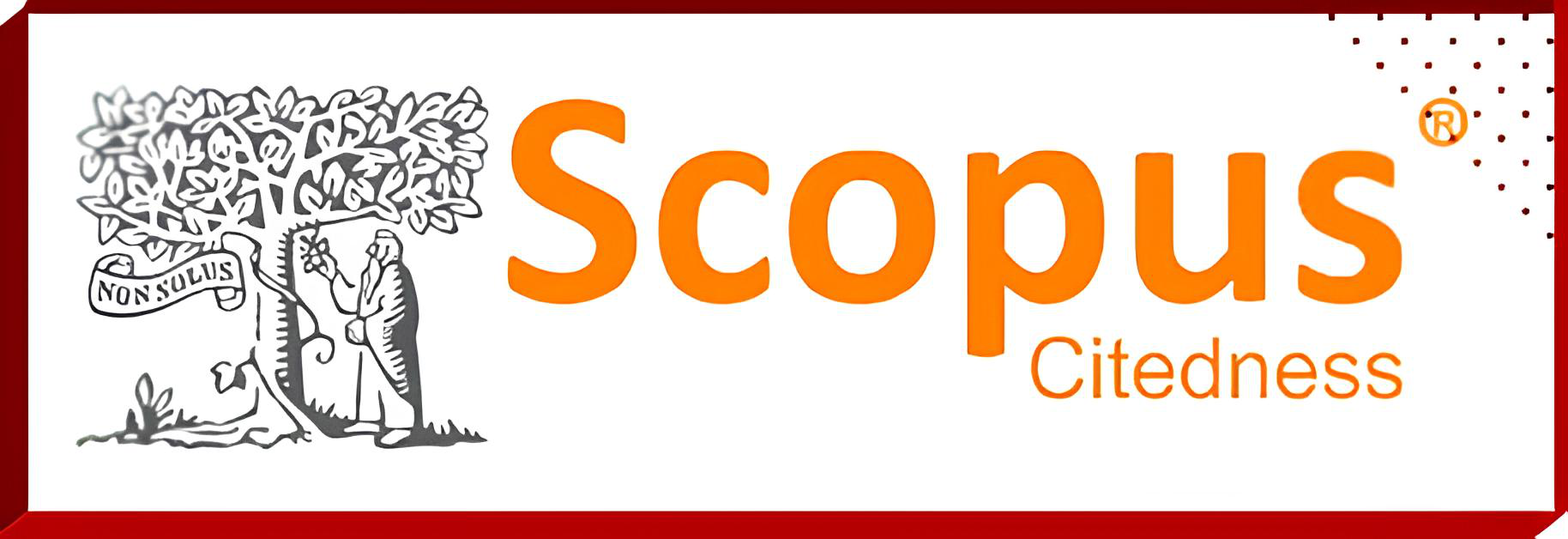Futurologi Pendidikan Bahasa di Era Digital: Eksplorasi AI untuk Literasi Anak Usia SD
 Abstract views: 379
,
Abstract views: 379
,
 PDF downloads: 382
PDF downloads: 382
Abstract
The development of digital technology has revolutionized the paradigm of elementary school education. Artificial Intelligence (AI) has become one of the significant breakthroughs in the application of artificial intelligence in the learning process. The purpose of this study is to explore the integration of AI in language learning to improve the digital literacy of elementary school children in the context of educational futurology. Through a literature study and trend analysis approach to identify various forms of AI utilization, such as educational chatbots, NLP (Natural Language Processing)-based applications, and adaptive platforms tailored to children's learning styles. This study discusses the ethical, pedagogical, and cultural challenges in the application of AI, as well as its implications for the development of language skills, children's understanding of literature, and the strengthening of cultural identity. The results of the analysis show that AI has great potential in supporting comprehensive digital literacy, provided that it is designed with a humanistic and contextual approach. The limitations of this study lie in the exploratory and predictive nature of the analysis, the limitations of generalization due to the heterogeneity of AI interventions, and the potential for publication bias that needs to be taken into account. Further long-term empirical research is needed to validate these findings. The practical implications of this research are the importance of synergy between educators, technology developers, and policymakers. Teachers are trained to become active users, technology developers design integrated contextual content, and policymakers develop ethical guidelines and adaptive regulations for inclusive, sustainable, and culturally sensitive AI implementation
Downloads
References
Adam, M. F., Wahyudi, A., Abdullah, M. R., Pratiwi, A., & Widuhung, S. D. (2024). Sosialisasi Literasi Kewirausahaan dan Pemanfaatan Digital pada Siswa SD Al Fityan School Tangerang. Prosiding Seminar Nasional Pemberdayaan Masyarakat (SENDAMAS), 3(1).
Dantes, N., & Handayani, N. N. L. (2021). Peningkatan Literasi Sekolah dan Literasi Numerasi Melalui Model Blanded Learning Pada Siswa Kelas V SD Kota Singaraja. WIDYALAYA: Jurnal Ilmu Pendidikan, 1(3).
Ekowati, D. W., Astuti, Y. P., Utami, I. W. P., Mukhlishina, I., & Suwandayani, B. I. (2019). Literasi Numerasi di SD Muhammadiyah. ELSE (Elementary School Education Journal) : Jurnal Pendidikan Dan Pembelajaran Sekolah Dasar, 3(1).
Gede, I., Sudipa, I., Widhi Adnyana, N., Kusuma, A. S., Komang, I., Ganda Wiguna, A., Putu, I., Eka, A., Udayana, D., Mahesa, P., Artha, K., Radhitya, L., Kusuma Wijaya, B., Shinta, G. A., Astari, D., Putu, N., Suandana, W., Kherismawati, E., Masuk, N., … Diterima, N. (2025). Literasi Pemanfaatan Artifical Intelligence (AI) dalam Mendukung Pembelajaran Anak Sekolah Dasar.
Haleem, A., Javaid, M., Qadri, M. A., & Suman, R. (2022). Understanding the role of digital technologies in education: A review. Sustainable Operations and Computers, 3.
Hoar Siki, Y. C., Joseph Manehat, D., & Amfotis, D. (2024). Literasi Digital Penguatan Pelajar Profil Pancasila bagi Siswa SD Kelas IV, V dan VI Kelompok Bermain Dusun Maulafa RT 17. Jurnal Pengabdian Kepada Masyarakat Nusantara, 5(1).
Im, H. (2024). Affective and Social Competencies of Elementary School Students in the Use of Digital Textbooks: A Longitudinal Study. Behavioral Sciences, 14(3).
Iskandar, M. F., Dewi, D. A., & Hayat, R. S. (2024). Pentingnya Literasi Budaya dalam Pendidikan Anak SD: Sebuah Kajian Literatur. Indo-MathEdu Intellectuals Journal, 5(1).
Lee, A. V. Y., Koh, E., & Looi, C. K. (2023). AI in Education and Learning Analytics in Singapore: An Overview of Key Projects and Initiatives. Information and Technology in Education and Learning, 3(1), Inv-p001-Inv-p001.
Leinonen, T., Virnes, M., Hietala, I., & Brinck, J. (2020). 3D Printing in the Wild: Adopting Digital Fabrication in Elementary School Education. International Journal of Art and Design Education, 39(3).
Prema Swandewi, N. P., Wisna Ariawan, I. P., & Gede Erni Sulindawati, N. L. (2024). Pengaruh Kepemimpinan Instruksional, Literasi Digital, Kecerdasan Emosional, Kecerdasan Intelektual Terhadap Kinerja Guru. Jurnal Sosial Teknologi, 4(1).
Puspita Sari, E. (2024). Media Pembelajaran Mata Pelajaran Bahasa Indonesia SD Di Era Digital. BAHUSACCA : Pendidikan Dasar Dan Manajemen Pendidikan, 4(1).
Ramadhany, E. P., Darmayanti, M., Kurniasih, K., & Syaripudin, T. (2024). Development of Digital Comic Media Based on Education for Sustainable Development (ESD) to Improve Cultural and Citizenship Literacy of Elementary Students. Jurnal Kependidikan: Jurnal Hasil Penelitian dan Kajian Kepustakaan Di Bidang Pendidikan, Pengajaran dan Pembelajaran, 10(1).
Tirtoni, F. (2020). PKM Pelatihan Platform Aplikasi Digital Literacy School Berbasis Artikulasi Intelegensi (AI) Bagi Guru SD. Jurnal Abadimas Adi Buana, 4(1).
Watem, M., Rahayu, D., & Asrul, A. (2024). Implementasi Gerakan Literasi Sekolah di Kelas 5 SD Muhammadiyah Aimas Kabupaten Sorong. Jurnal Papeda: Jurnal Publikasi Pendidikan Dasar, 6(1).
Zulqadri, D. M., & Nurgiyantoro, B. (2023). Pengembangan Multimedia Interaktif Berbasis Web untuk Meningkatkan Literasi Budaya dan Literasi Digital Siswa Kelas V SD/MI. Jurnal IPTEKKOM Jurnal Ilmu Pengetahuan & Teknologi Informasi, 25(1).
Copyright (c) 2025 GHANCARAN: Jurnal Pendidikan Bahasa dan Sastra Indonesia

This work is licensed under a Creative Commons Attribution-ShareAlike 4.0 International License.
Ghancaran: Jurnal Pendidikan Bahasa dan Sastra Indonesia uses an Open Access Policy under the Creative Commons Attribution-ShareAlike 4.0 International License. Authors publishing in this journal agree to the following terms:
- Ghancaran Journal holds the copyright and grants the journal rights for first publication with the work simultaneously licensed under a

The work is distributed under Creative Commons Attribution-ShareAlike 4.0 International License which allows others to share, copy, and redistribute the material in any media or format and adapt, remix, change, and develop the material even for commercial purposes, as long as it is stated credit and license derivative works under similar terms. - Authors may make additional contractual arrangements for non-exclusive distribution of the journal's published work version.
- Authors are permitted to post their work online (e.g., in institutional repositories or on their websites) before and during submission, as doing so may lead to productive exchange.



















